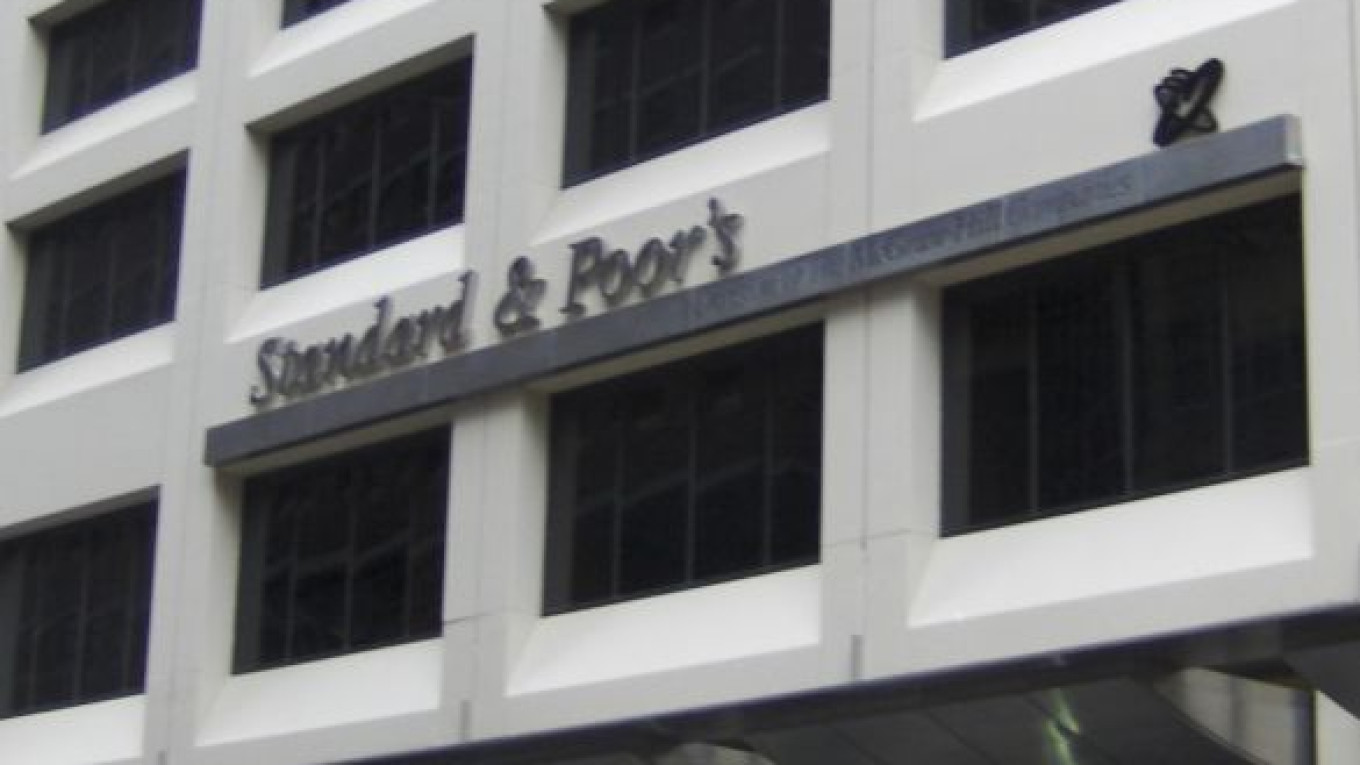Russian banks look set to rein in their asset growth and restore their capitalization after rapidly expanding their balance sheets during the second half of 2010 and in 2011, Standard & Poor's said in a report published Wednesday.
With capital injections sporadic at best, banks will likely have to constrain their asset growth or consider alternative capital raising measures, including hybrid debt instruments, to restore their financial health, the rating agency said.
"We believe the deterioration in capital adequacy among Russia's 30 largest banks, which is due to rapid balance sheet expansion, should stabilize over 2012-2013, and that their weighted-average risk-adjusted capital ratios will settle at about 5 percent to 6 percent," Standard & Poor's credit analyst Sergei Voronenko said.
Asset growth will slow in 2012 and capital erosion will gradually flatten out, he said.
Significant balance sheet expansion was the main driver of risk-adjusted capital ratio deterioration in 2011, Standard & Poor's said. The risk-weighted assets of the top 30 banks increased by 34 percent in 2011, whereas total adjusted capital rose by 24 percent. At the same time, the structure of the banks' risk-weighted assets did not change significantly throughout the year.
Standard & Poor's also said that state-controlled banks are generally growing more aggressively than their privately-owned counterparts.
Fresh Tier 1 capital injections to support the regulatory ratio will likely be scarce, the rating agency said. Consequently, a number of banks will look for alternative capital sources.
Although more hybrid securities will be issued in the future, banks will maintain an acceptable quality of capital over the next two to three years, Standard & Poor's said.
Related articles:
A Message from The Moscow Times:
Dear readers,
We are facing unprecedented challenges. Russia's Prosecutor General's Office has designated The Moscow Times as an "undesirable" organization, criminalizing our work and putting our staff at risk of prosecution. This follows our earlier unjust labeling as a "foreign agent."
These actions are direct attempts to silence independent journalism in Russia. The authorities claim our work "discredits the decisions of the Russian leadership." We see things differently: we strive to provide accurate, unbiased reporting on Russia.
We, the journalists of The Moscow Times, refuse to be silenced. But to continue our work, we need your help.
Your support, no matter how small, makes a world of difference. If you can, please support us monthly starting from just $2. It's quick to set up, and every contribution makes a significant impact.
By supporting The Moscow Times, you're defending open, independent journalism in the face of repression. Thank you for standing with us.
Remind me later.


